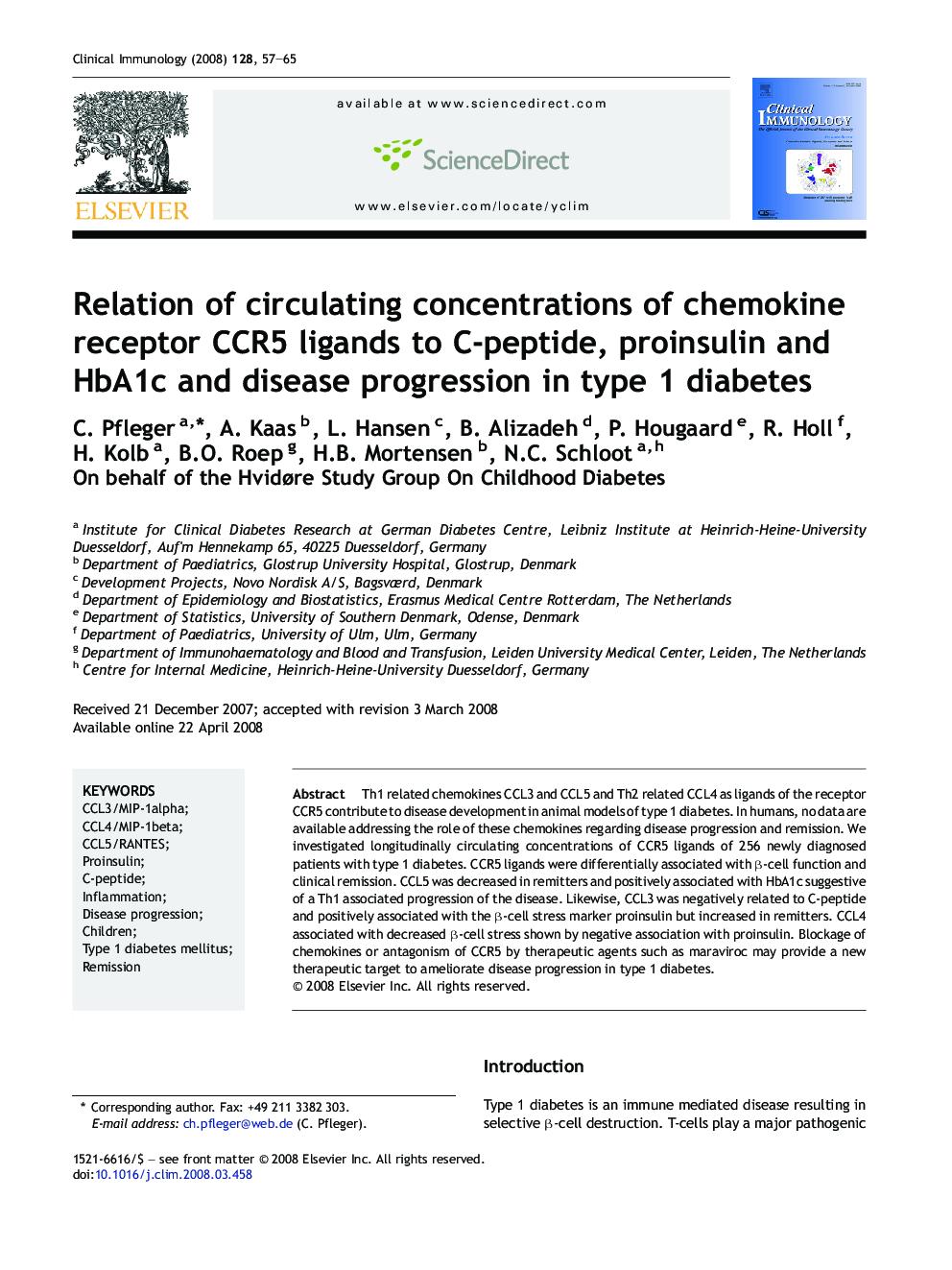| Article ID | Journal | Published Year | Pages | File Type |
|---|---|---|---|---|
| 3258388 | Clinical Immunology | 2008 | 9 Pages |
Th1 related chemokines CCL3 and CCL5 and Th2 related CCL4 as ligands of the receptor CCR5 contribute to disease development in animal models of type 1 diabetes. In humans, no data are available addressing the role of these chemokines regarding disease progression and remission. We investigated longitudinally circulating concentrations of CCR5 ligands of 256 newly diagnosed patients with type 1 diabetes. CCR5 ligands were differentially associated with β-cell function and clinical remission. CCL5 was decreased in remitters and positively associated with HbA1c suggestive of a Th1 associated progression of the disease. Likewise, CCL3 was negatively related to C-peptide and positively associated with the β-cell stress marker proinsulin but increased in remitters. CCL4 associated with decreased β-cell stress shown by negative association with proinsulin. Blockage of chemokines or antagonism of CCR5 by therapeutic agents such as maraviroc may provide a new therapeutic target to ameliorate disease progression in type 1 diabetes.
